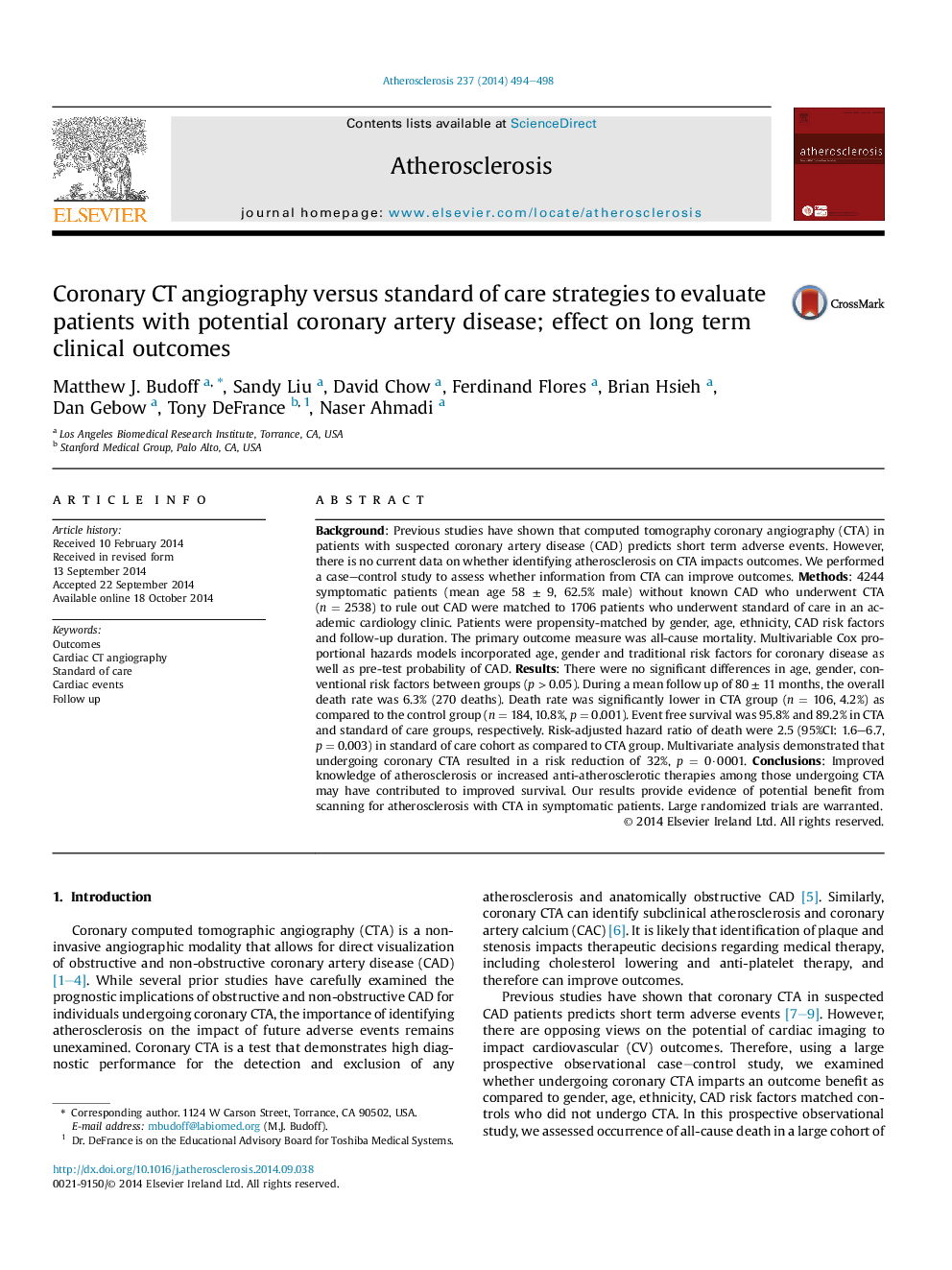| Article ID | Journal | Published Year | Pages | File Type |
|---|---|---|---|---|
| 5945318 | Atherosclerosis | 2014 | 5 Pages |
â¢No study has previously compared patients undergoing CTA to standard of care.â¢Undergoing CT angiography leads to better outcomes.â¢Improved outcomes most likely due to better initiation of medication and adherence.
Background: Previous studies have shown that computed tomography coronary angiography (CTA) in patients with suspected coronary artery disease (CAD) predicts short term adverse events. However, there is no current data on whether identifying atherosclerosis on CTA impacts outcomes. We performed a case-control study to assess whether information from CTA can improve outcomes. Methods: 4244 symptomatic patients (mean age 58 ± 9, 62.5% male) without known CAD who underwent CTA (n = 2538) to rule out CAD were matched to 1706 patients who underwent standard of care in an academic cardiology clinic. Patients were propensity-matched by gender, age, ethnicity, CAD risk factors and follow-up duration. The primary outcome measure was all-cause mortality. Multivariable Cox proportional hazards models incorporated age, gender and traditional risk factors for coronary disease as well as pre-test probability of CAD. Results: There were no significant differences in age, gender, conventional risk factors between groups (p > 0.05). During a mean follow up of 80 ± 11 months, the overall death rate was 6.3% (270 deaths). Death rate was significantly lower in CTA group (n = 106, 4.2%) as compared to the control group (n = 184, 10.8%, p = 0.001). Event free survival was 95.8% and 89.2% in CTA and standard of care groups, respectively. Risk-adjusted hazard ratio of death were 2.5 (95%CI: 1.6-6.7, p = 0.003) in standard of care cohort as compared to CTA group. Multivariate analysis demonstrated that undergoing coronary CTA resulted in a risk reduction of 32%, p = 0·0001. Conclusions: Improved knowledge of atherosclerosis or increased anti-atherosclerotic therapies among those undergoing CTA may have contributed to improved survival. Our results provide evidence of potential benefit from scanning for atherosclerosis with CTA in symptomatic patients. Large randomized trials are warranted.
